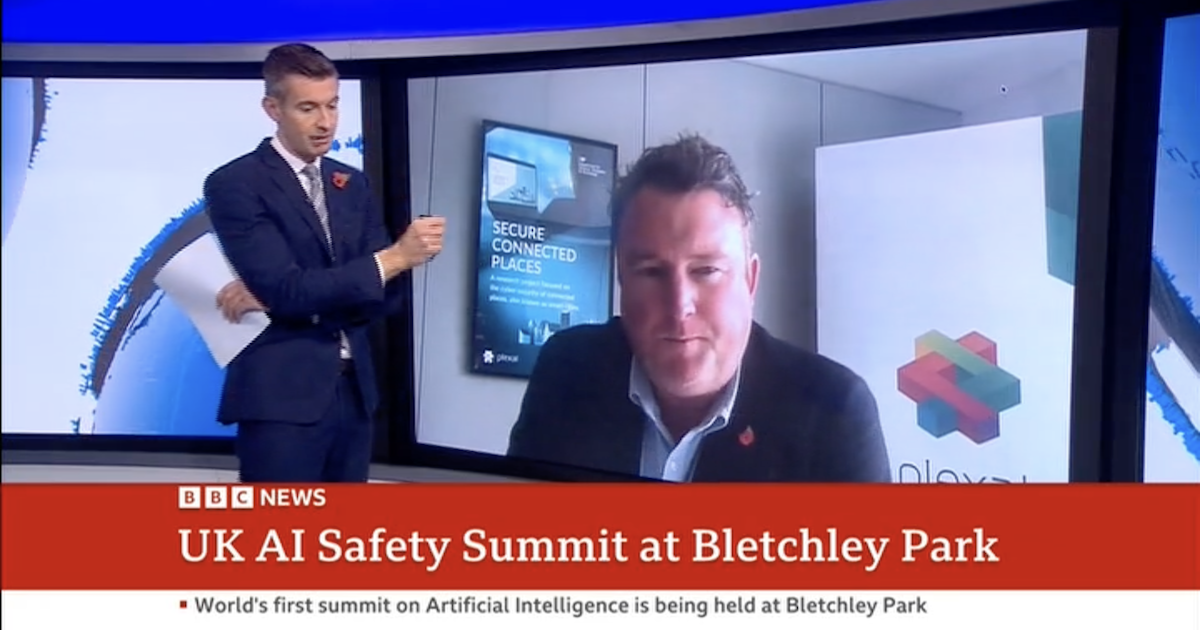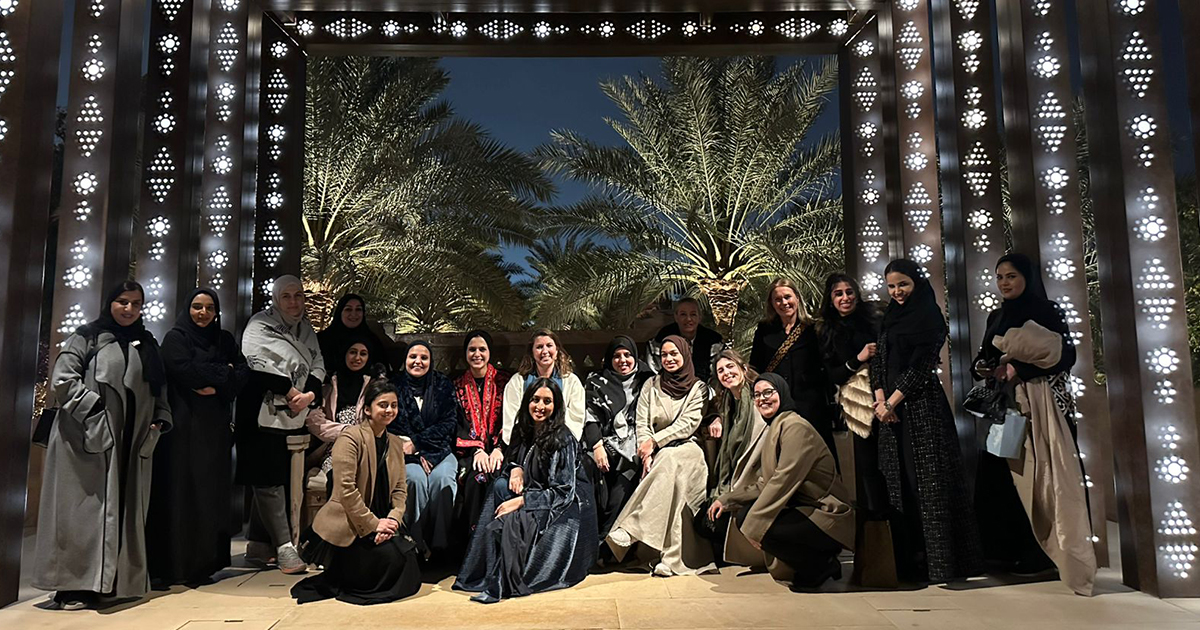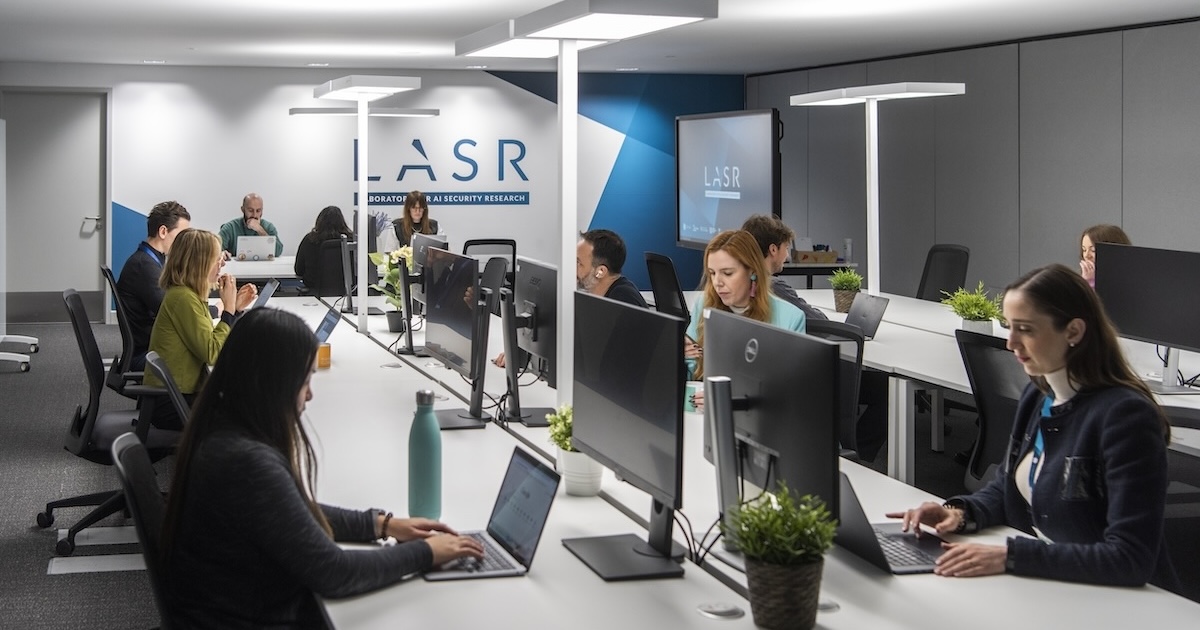After months of preparation, the “major global event” that is the AI Safety Summit has kicked off at Bletchley Park, running from Wednesday 1st to Thursday 2nd November.
Assembling delegates from the world over, organisations in attendance at the AI Safety Summit span government, academia, industry with just a handful of names among them including the Ada Lovelace Institute, Amazon Web Services, Darktrace, Google, IBM, Stanford University and techUK.
During London Tech Week, Plexal’s CEO Andrew Roughan was featured on BBC News in conversation with presenter Ben Thompson, during which the AI Safety Summit was a topic of conversation. At the time, Andrew stated: “I think we must make sure that we put the guardrails in the right place but also understand AI from a growth potential perspective. So, I’d certainly be an advocate of regulation, but regulation that genuinely understands the technology opportunity that it presents.”
Several months later with the event upon us, Andrew has joined Ben on BBC News once more as the AI Safety Summit gets underway. Ben questioned just how significant the event is, particularly as we hope to harness AI sustainably, to which Andrew reasoned this is a huge milestone.
“This is a really important moment for the UK,” Andrew detailed. “We’ve been longstanding leaders in AI to date as a result of the world class research that comes out of our universities, but also the talent that’s then fuelled companies like DeepMind, now part of Google. And that’s why we’re so attractive to foreign direct investment in the form of companies like Anthropic.” With this foundation in place, he added that hosting the Summit is a milestone that’s “positioned the UK really strongly for the future” and continuing our journey to lead.
Touching on Plexal’s role within the innovation ecosystem and our work with startups and scaleups, Ben asked about Andrew’s thoughts when it comes to balancing regulation versus giving innovators the freedom to experiment with AI – particularly frontier AI. “I do agree with the point that we can’t regulate something until we fully understand it,” Andrew said, pointing to the AI Safety Summit as “the opportunity to discuss and understand capability and risk”.
Elaborating on this, Andrew continued to say the AI Safety Summit can “start the collaborations that will take us on the journey towards appropriate regulation”. And getting this right is paramount for Britain to benefit. “I think it really is a seesaw balance here, where the opportunities at an industrial level, export level and social level are so strong that if we can push through and understand the risk, we can unlock a huge potential that the UK can lead upon.”
Ben suggested a risk of AI is that it becomes something only the powerful organisations can access. Interrogating Andrew further on that potential just bubbling away beneath the surface, Ben asked for examples of benefits and how smaller companies within Plexal’s community are using the technology successfully. “Narrow AI has been used quite prolifically over the course of the last few years,” Andrew highlighted. “We see a lot of cyber security companies who are trying to manage risk to the economy, risk to industries and risk to infrastructure, and we’re seeing companies using narrow AI effectively to drive productivity.”
Moving more towards generative and frontier AI which the AI Safety Summit is focused on, Andrew said we’re at an early stage in terms of its application within startups and new innovations. “But what we’re seeing is those that are [using frontier AI], are taking the data integrity really seriously, understanding what data their models are learning from, understanding that humans still need to be in control of this ultimately.” Circling back to his starting point of the conversation about regulation and understanding the technology, Andrew emphasised that we can’t let the machines take over while we’re still learning as an industry.
A tech for good advocate by nature, Andrew closed the conversation with optimism and said: “People are being taken on the journey – so whether that’d be a customer, a consumer or a government employee, let’s take them on a journey of understanding this without mystifying them with technology.”


